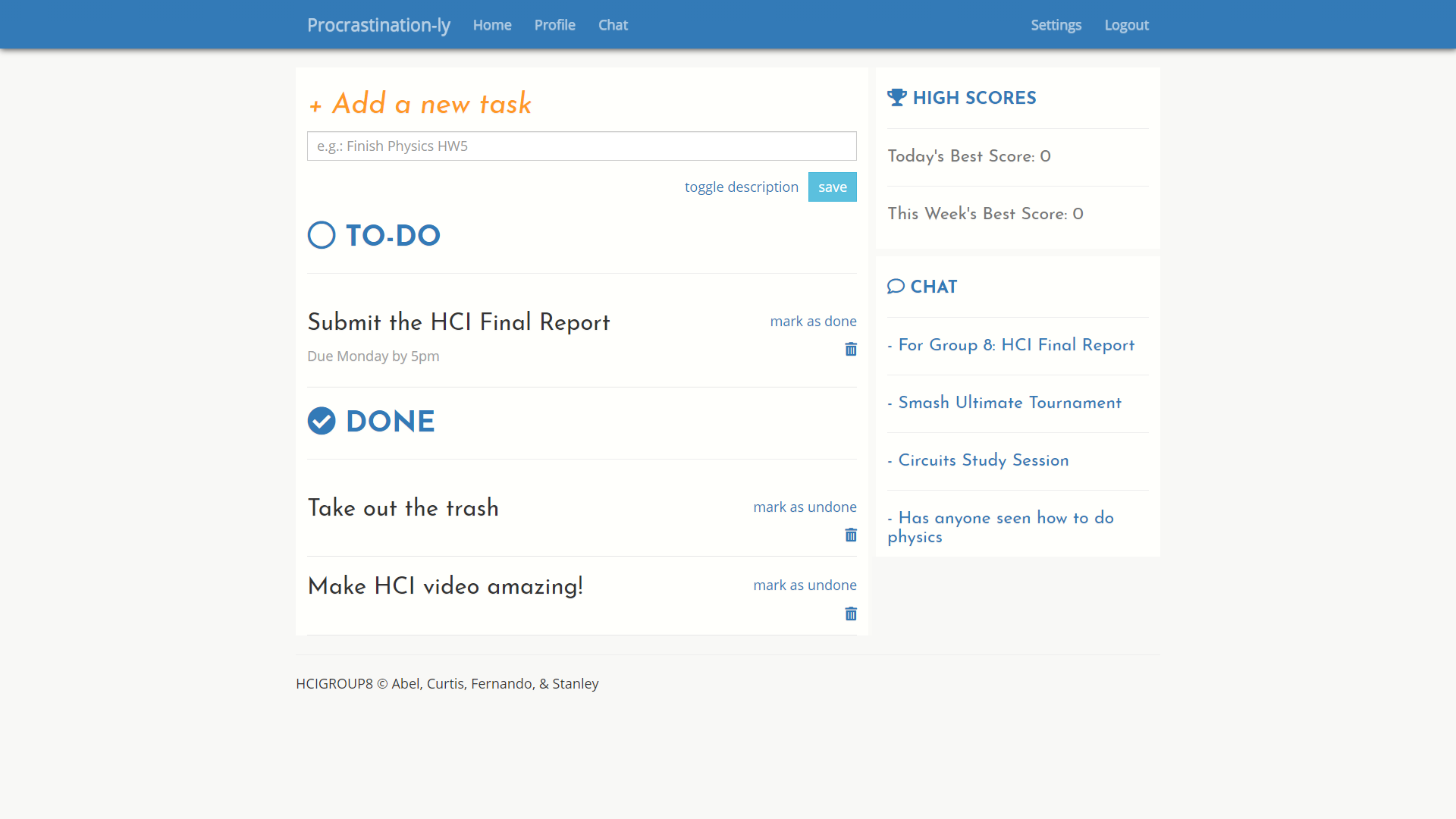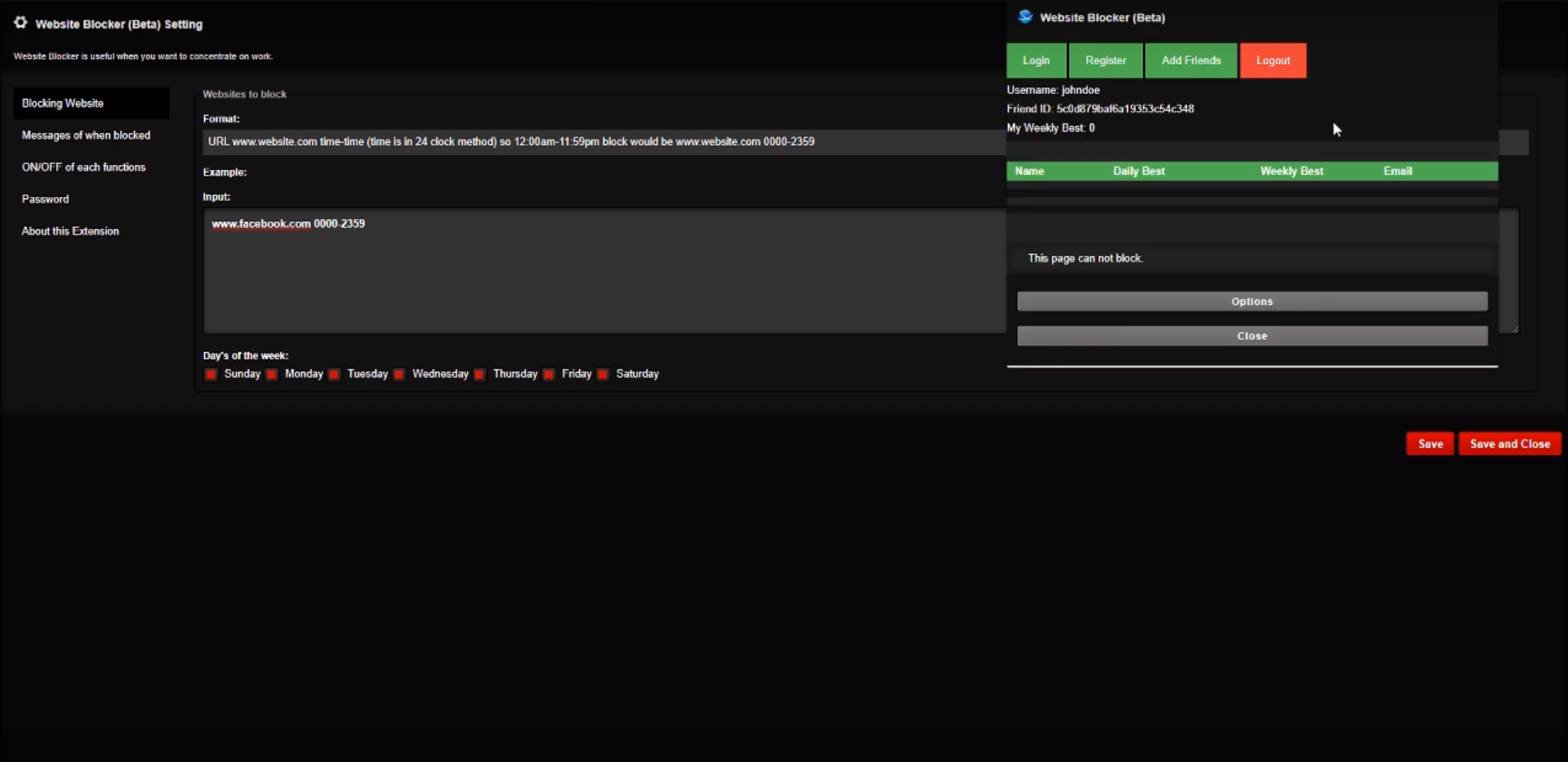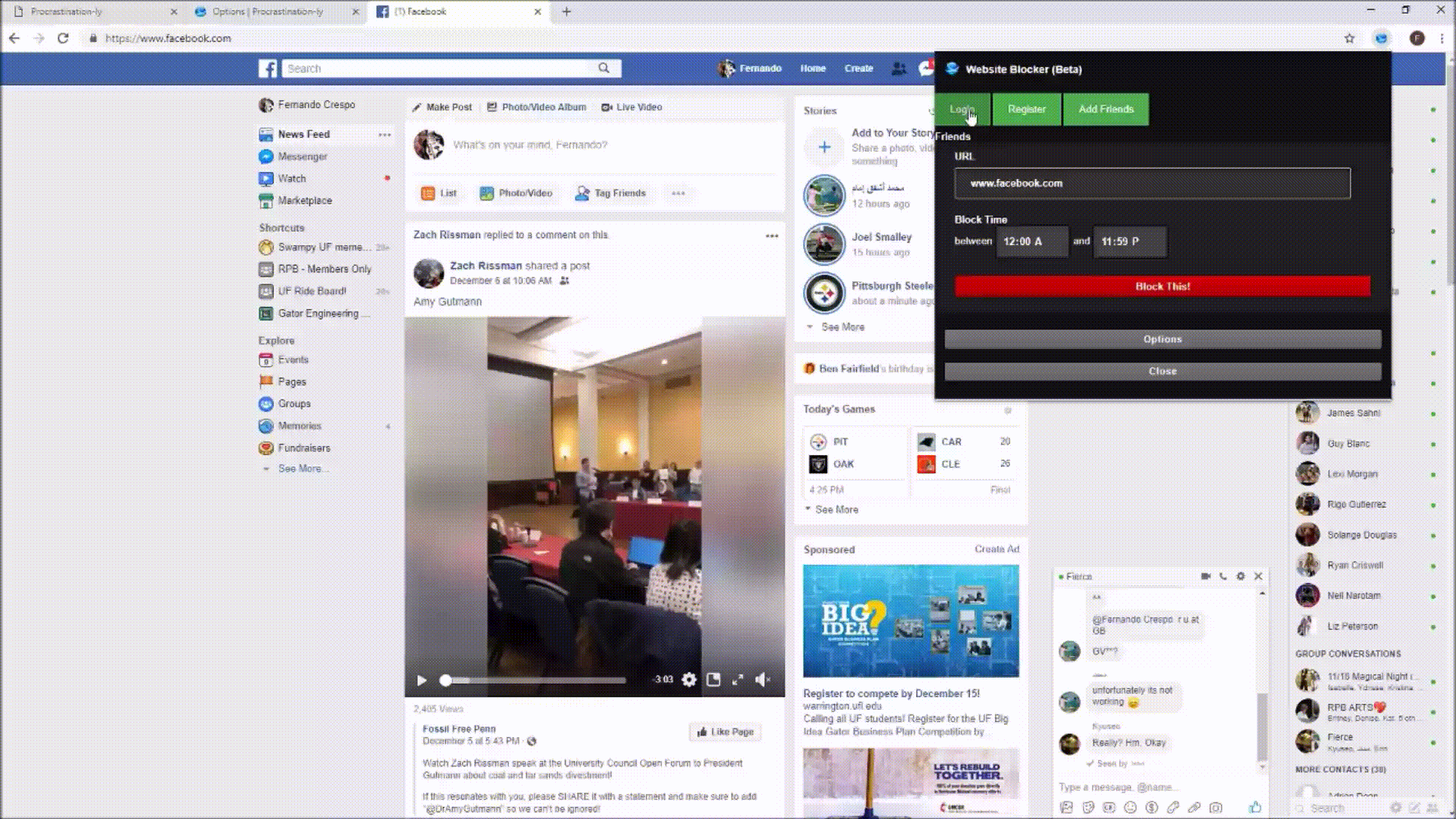A group class project for Human-Computer Interactions elective. The objective was to tackle the problem of procrastination and design a potential and functional solution by using what we've learned about HCI. The result was a web prototype that was used to gather data and perform user studies in order to gauge if the solution worked efficiently.
Procrastination and the Digital Era
Procrastination has always been an unsurprising visitor to many of our lives at some point, and especially as students, and there's an interesting correlation that with advent of the Social Media Age that accompanied the Information Age, comes also a more easier way for procrastination to take root in our lives. For our Human-Computer Interactions class,this is a textbook problem that directly touches on the nuances we can manipulate and design how humans interact and interface with computers in order to achieve bigger tasks.
Fighting fire with fire?
As the previous section has noted, alongside confirmation through various ongoing HCI research, social media seems to have a correlation with procrastination. Upon various brainstorm sessions, our team decided to attempt to solve the problem, simply by designing a formidable social media that focuses on fighting back procrastination by encouraging productivity using the very same peer pressure social media applies. In order to encourage productivity, the simplest way to get organized and combat procrastination is a to-do list, hence being inspired by a popular productivity app "Procraster," as well as taking social media elements, born the name "Procraster-ly," where the "ly" part derives from "Musical.ly" (One of our team members missed Musical.ly and was obsessed with it).

TODO: explanation of some of the social media aspects and turning some of negative social media reinforcement into positive social media reinforcement.

